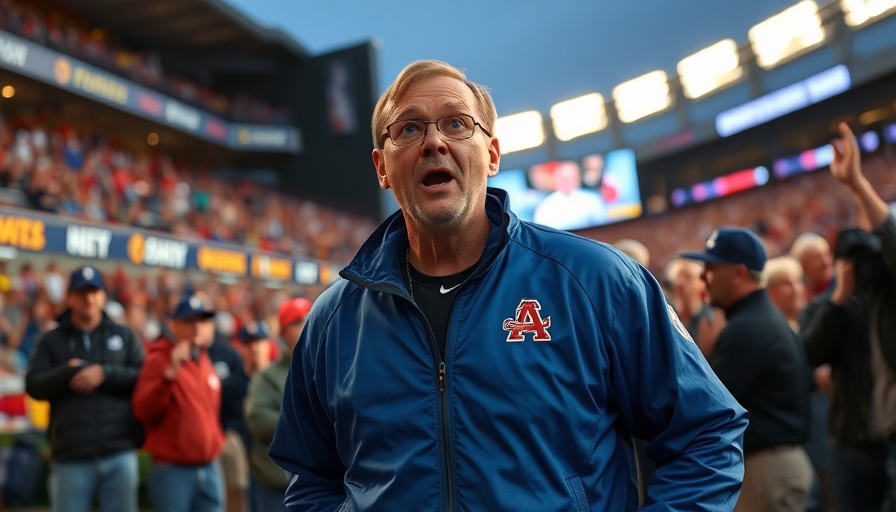
MLB's Tough Stance on Manager Conduct and Its Impact
In an unexpected turn of events during a high-stakes match between the Los Angeles Dodgers and San Diego Padres, both teams found themselves at the center of a notable altercation. MLB responded decisively, suspending Dodgers manager Dave Roberts for one game following Thursday’s clashes that have raised eyebrows across the sport. But what does this mean for the broader context of baseball?
Roberts, after the game, shared that while he understands MLB's move, he feels it detracts from what baseball should truly symbolize. “I never want to make the game about the managers, it shouldn’t be,” he emphasized, signaling a concern for the integrity of play over sideline theatrics.
Understanding the Altercation
The root of the discord began when Dodgers' relief pitcher Jack Little hit the prominent Padres player Fernando Tatis Jr. with a pitch. Tensions escalated when Padres manager Mike Shildt reacted by storming out of the dugout, leading to a heated confrontation. As both teams' benches cleared, the focus shifted from the game’s outcome to a display of managerial fury.
Shildt wasn't spared in the fallout; he too received a one-game suspension while pitcher Robert Suarez faced a more severe consequence with a three-game ban for intentionally hitting superstar Shohei Ohtani. This series of suspensions underscores MLB's commitment to maintaining decorum on the field, particularly when it involves player safety and the spirit of competition.
What Fans Can Learn from This Incident
For baseball aficionados, incidents like these can serve as a microcosm of the larger dynamics within sports culture. Managers are key strategic players, but their decisions can sometimes spiral into emotional outbursts that overshadow the athletes. This case raises questions about how managerial conduct shapes the viewing experience and the messages it sends to budding players.
Fans watching from the stands or at home may feel caught between their affinity for team rivalry and their desire for sportsmanship. The unpredictability that comes with these altercations might heighten tension on the field, but it also introduces a layer of complexity beyond the usual statistics and scores.
The Cultural Impact of Baseball’s Latest Controversy
This incident isn’t merely a hot topic for sports talk shows; it reflects wider themes of aggression and rivalry in sports. It stands as a reminder that every action and reaction on the field resonates with younger generations who look up to these figures as role models. How a manager like Roberts handles adversity may influence how players perceive their responsibilities, both as competitors and as ambassadors of the sport.
As MLB grapples with its image and reaches out to new fans, these moments of passion and conflict contribute to ongoing discussions about what it means to be a professional athlete in today’s climate. While the game’s essence remains competitiveness, we’re left contemplating how these fiery altercations symbolize the larger narrative of sportsmanship versus personal pride.
Future Outlook for Managerial Conduct in MLB
What does the future hold for manager conduct in the MLB? The league's penalties suggest a proactive approach to curbing behavior that strays too far from the principles of fair play. As the season unfolds, it will be critical for all stakeholders—managers, players, and even fans—to recalibrate their understanding of acceptable conduct in the heat of battle. Enhancing respect on the field may lead to more harmonious interactions and a focus on game skill and strategy.
As the Dodgers prepare for their next game against the Nationals with bench coach Danny Lehmann stepping in for Roberts, it’s an important moment to reflect on the broader implications of manager conduct in sports. Will we see a turning point where focus shifts back to the players, and will managers adopt a renewed sense of accountability?
 Add Row
Add Row  Add
Add 




Write A Comment